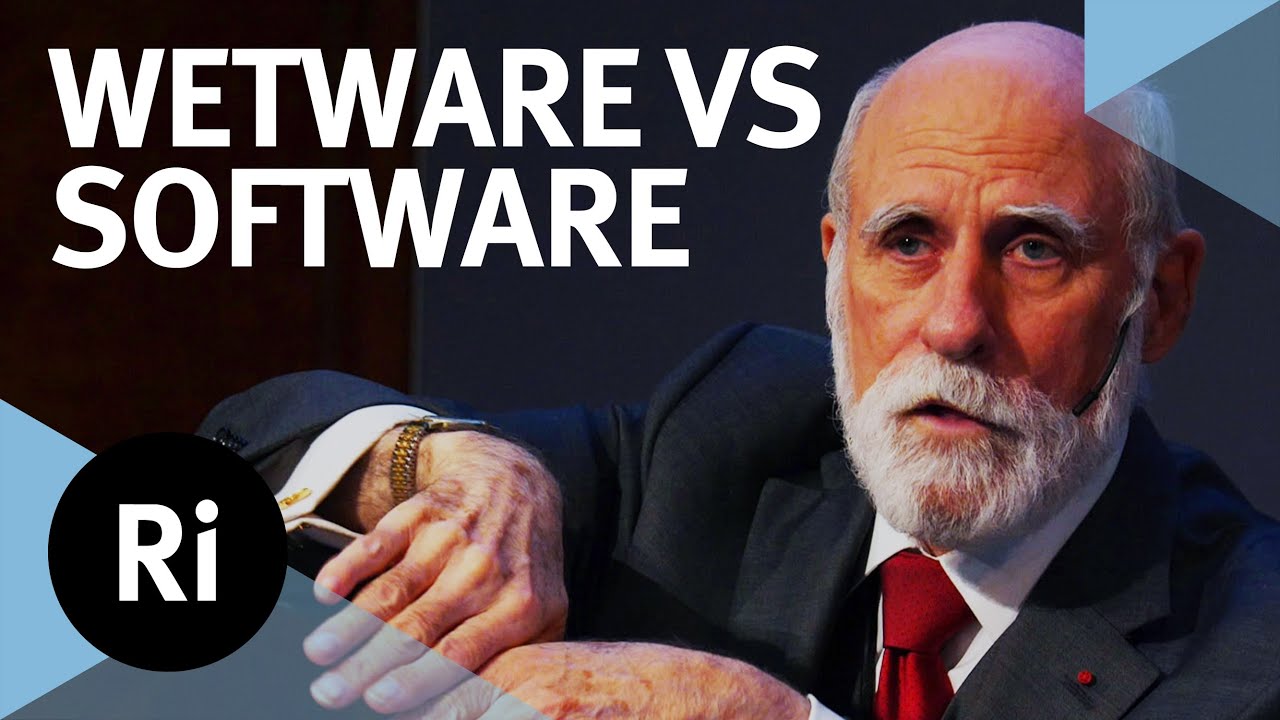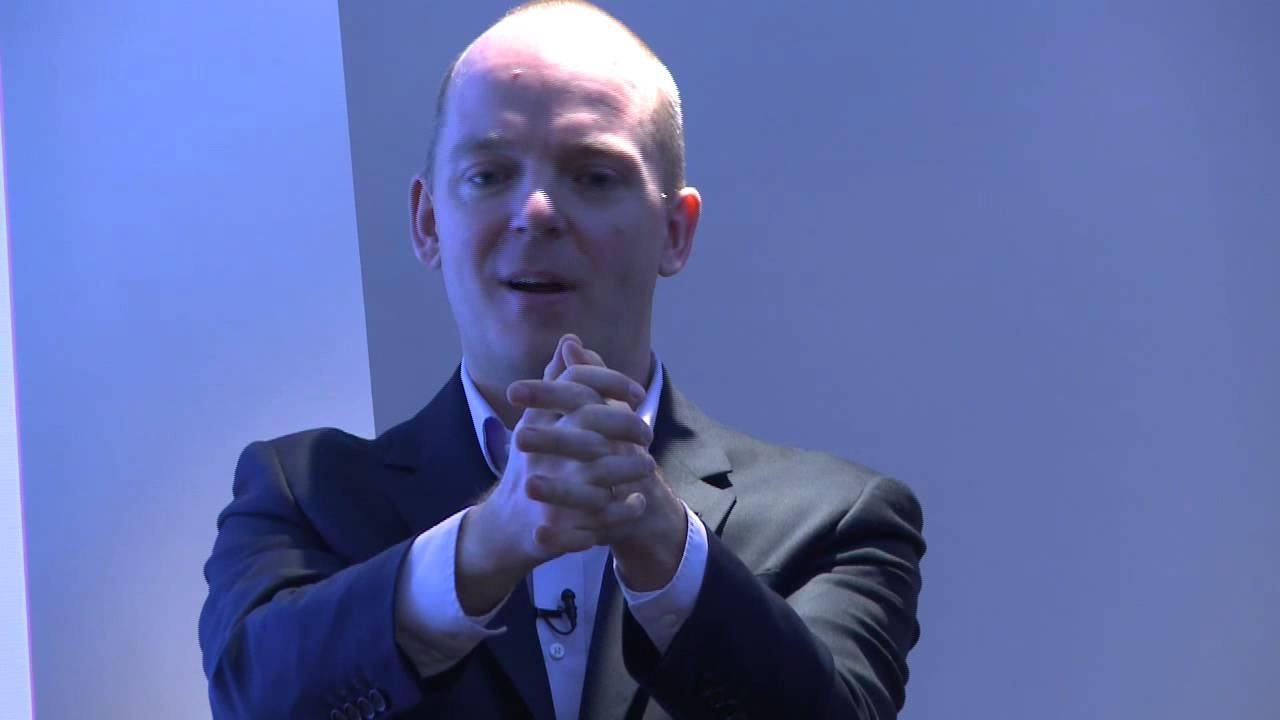The Royal Institution
The rise of artificial intelligence has seen computers beating chess experts and performing incredibly complex tasks. But why can’t they think the same way we do?
Watch the Q&A: https://youtu.be/Gwa38tzo2Nc
We have built incredibly powerful, multi-layered, neural networks capable of learning incredibly quickly and carrying out seemingly impossible tasks, but they still can’t always tell the difference between a polar bear and a dishwasher.
In this talk ‘Father of the Internet’ Vint Cerf explores why it is so challenging for any computer-based system, however elaborate, to reason in the same way we do.
Vinton G. Cerf is vice president and Chief Internet Evangelist for Google. He contributes to global policy development and continued spread of the Internet. Widely known as one of the “Fathers of the Internet,” Cerf is the co-designer of the TCP/IP protocols and the architecture of the Internet. He has served in executive positions at MCI, the Corporation for National Research Initiatives and the Defense Advanced Research Projects Agency and on the faculty of Stanford University.
This talk was filmed in the Ri on 9 March 2020.
—
A very special thank you to our Patreon supporters who help make these videos happen, especially:
Alan Latteri, Alan Moore, Andrew Downing, Andrew McGhee, Andrew Weird, Anonymous, Dave Ostler, David Crowner, David Lindo, David Schick, Fairleigh McGill, Greg Nagel, Jan Bannister, Jan Všetíček, Joe Godenzi, John C. Vesey, Kellas Lowery, L S, Lasse T. Stendan, Matt Townsend, Michael Morrissey, Michelle J. Zamarron, Osian Gwyn Williams, Paul Brown, Rebecca Pan, Robert Hillier, Robert Reinecke, and Roger Baker.
—
The Ri is on Patreon: https://www.patreon.com/TheRoyalInstitution
and Twitter: http://twitter.com/ri_science
and Facebook: http://www.facebook.com/royalinstitution
and Tumblr: http://ri-science.tumblr.com/
Our editorial policy: http://www.rigb.org/home/editorial-policy
Subscribe for regular science videos: http://bit.ly/RiSubscRibe
Product links on this page are affiliate links which means it won’t cost you any extra but we may earn a small commission if you decide to purchase through the link.
Source




Bless this man, because of him i can talk to people that obsess over the same movies, shows, books, and ect. as me, get updates on what's new up here, and text
Vint mentions TCP/IP, the technology that allows the internet to work.
He has such humility that he doesn't mention that he's one of the co-inventors of TCP/IP.
why would a toilet or refrigerator need to communicate with anyone other than the one there with them? Sounds like CCP control.
The sports team fan analogy is not entirely apt. Fans of rival teams can still relate over their shared interest in the sport, often with some good natured pro forma teasing over beers. Getting online hostility down to the level of that between fans of rival sports teams would probably be a marked improvement.
What a treat. I haven't seen a Vint Cerf talk in ages. I learnt about how TCP/IP and packet switching worked from one of his lectures almost a decade ago… He was so clear that it pushed me to learn distributed systems and changed my thinking. I would have never have gotten into tech without seeing his talk 10 years back. I'd love to shake his hand and thank him one day.
Why would you want to build machines that think like humans, if you have actual humans?
I'm glad The Architect is speaking normally for us dummies. He seems really chill when not having to blackmail The One into reloading the Prime Program.
24:12 Possibly the most important part of the lecture…
He seems to explain how Neural Networks are not using Feature Selection
[https://en.wikipedia.org/wiki/Feature_selection%5D when they perform Classification via Supervised Learning, but are instead looking for correlations between mappings in multi (higher)dimensional vector spaces.
Gregtech be like
I feel like this guy has gotten off-topic.
This guy is somewhat at odds with his management then. Alphabet/Google will only support mobile devices (phones, tablets, etc.) for something like 36 months. Many of those devices have useful lifetimes well past that limit. I get it. It's economics. Updating software might come to the end consumer for "free", but it takes people's time and therefore money to correct those errors. Bugfixing can't be infinite and still have a sustainable business model, you must pick a time after which you say, "no more." It just seems that the hardware far outlives its economically maintained software in the case of a number of Google's products.
Wow!!! It's an amazing talk given by an amazing person.
Interesting but he never came near to addressing the main question "Will Computers Ever Think Like Human Beings?" so I wasted 58 minutes!
RI has great speakers. However, I have no idea why, I find them all boring.They do not say anything that would exite me to watch to the end. 10 min seems like 10 hours. As much as I want to watch till the end, I can't. I am curious and love to learn. Yet, all this speakers are not saying anything new and exciting.
He is dressed impacably. My respects!
It will be always possible for bunch of programmers and chess players collectively to create a software which can defeat a single even the best chess player. This is not computer vs. huma, it is humans vs. human. Computer cannot be able to think like people because people are not smart enough to make those machines….for people to understand the inner workings of their brains means the brain would have been too simple which in turn will prevent us of knowing our brain 🙂
You developing autistic computers?
thanks for sharing
When the man from Google says use your mind not the machine you really take note. Brilliant talk.
no ~ long answer ~ know ~ all vibrations are analog ~ real thought involves sympathetic vibrations and harmony for all life forms ~ animal plant or mineral
1/7 = ..142857142857142857142657 ~ any number divided by 7 ends up with this repeating decimal ~ repetition = accuracy ~ perfection = infinity …G%
Wonder how self driving car auto pilot would handle the following traffic sign in Melbourne Australia,
" Turn left from the right", also known as a "hook turn" 😅.
They sure don’t think the same as global merchants after a fully hedged nights sleep, thank you
Computers don't have soul's that exist interdimensionally, we do..
Seem's like a nice guy, I like a lot of what he say's but, saying that Google tries to keep only good content and get rid of dis information, Google was sold out to China to spy on their people, google going against Americans. (I wonder how long before this comment is erased???, trying to influence elections, taking down people with different views. Then he say's their not about absolutes, to me it is the same old control the narrative, divide and conqueror. I am sorry if I don't buy into what he is really trying to sell. Or is the left big tech going control your minds all the way? They done a pretty good job so far.
Without wishing to detract from his prestige or his remarks in any way, his description of the 100-dimensional ambiguity in pattern recognition is simply wrong. It's not the 10000-vector that's ambiguous, it's the value of each of the points in that space, even if quantized to only 1 bit per point.
No
Contrary to the egocentric who think human beings might all be the same and therefore be analysed as a 'group' for purposes of research, it's just not so.
Computers may achieve the process of thought as some humans, particularly those who 'know' but not all humanity fit that model, much to the joy of those who 'know', because the knowing ego finds great satisfaction in the notion of its superiority.
Most of us do not 'know' and therefore possibilities are infinite and unknown, not fitted to notional binary terms or anywhere in the notional space between.
🌱🍀⌚®️👁️👁️
No but humans will think like computers.
Short answer: no. God created humans, nothing can create itself
Greetings: Human Beings Definition [Monsters]. So Well AI Think, Like [Monsters]. Here Think This Those BLACK HAS STANDING AT LAW?
They won't have to think like us, they'll be us and we will be them
I'm still waiting for "humans" to think like humans…
Wonderful clarification around the topics of AI and software in general, much appreciated. But unjustifiable common vulgarity at times. Completely unnecessary and takes away from the talk, especially in this venue.
Ide like to hear more from this guy
Bunch of psychopaths playing god
Ok first off we are NOT calling it wetware. NO… just NO.
The electric universe is fractal…..
Computers don't think, can't think, never will think period. Anyone who is deluded enough to think that computers think, knows absolutely nothing about computers…sorry. Imagine an ancient tribal priest telling you that his carved idol is a God!
Computers can basically only output what you put into them. AI systems at the moment only have a list of questions and answers already input, then a word matching program returns an answer for a set number of matched words in any given question. It's not that complicated. We can train them to do specific things, like play chess, and make them learn by creating deviation algorithms that deviate from a path when they lose, and keep to the path when they win, then store the results, which is a basic learning program. Getting a computer to think 'out of the box' to come up with totally new ideas, or new answers to existing questions, is a lot harder. Not saying it can never be done, but we are a long way off doing this. Pretty much like driverless cars can only drive safely at very slow speeds, driving at speeds normal humans take for granted is still some time away. Sonic sensors are not that accurate, analysis of camera input is enormously complex, which is why existing systems you may think are nearly perfect will inexplicably run over a cyclist. People who don't understand how computers work believe they are better than humans, and will thus make better drivers, but anybody who is a programmer, who has tried to do this, will know they are far from being perfect enough to actually drive safely.